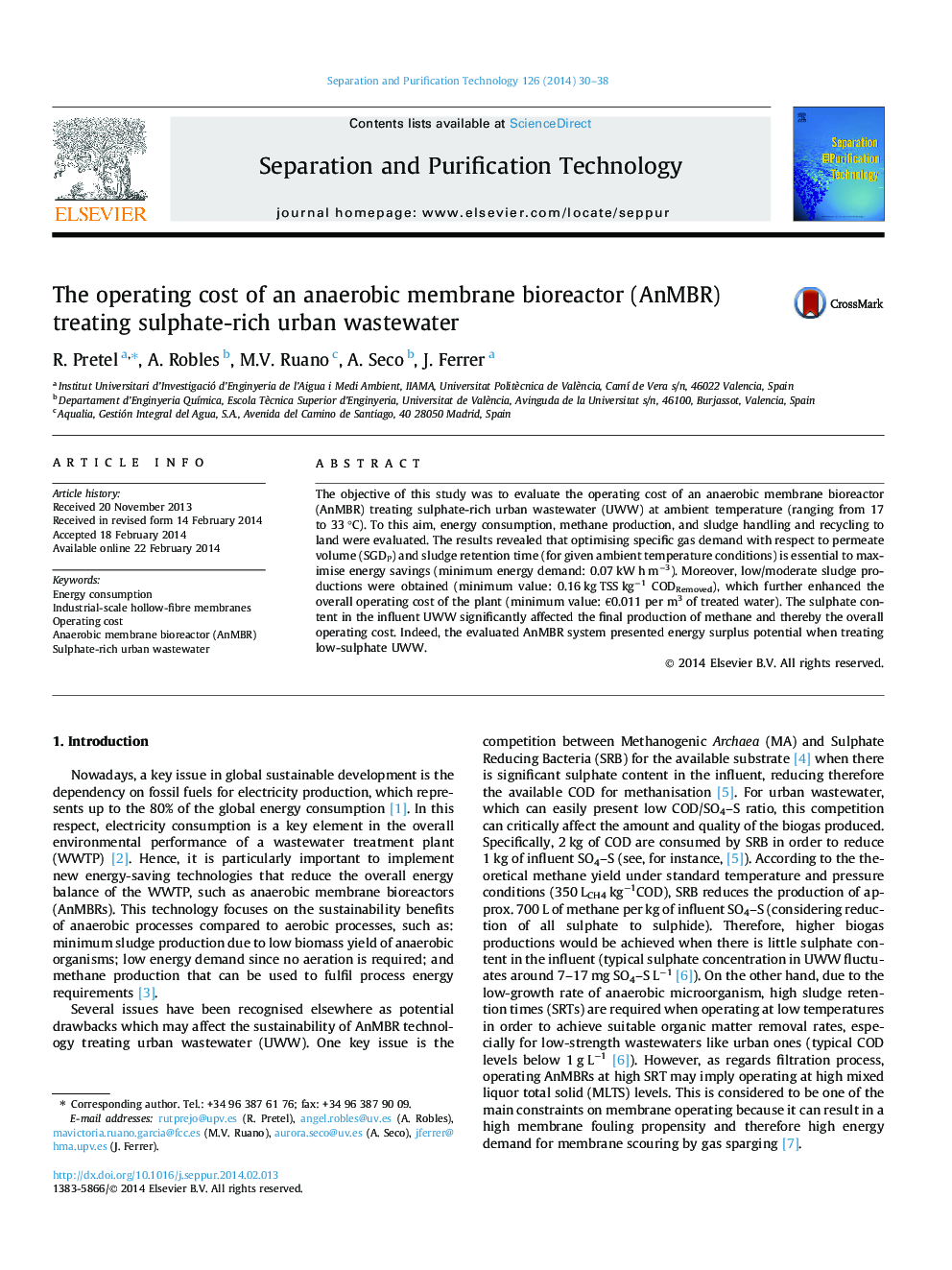| Article ID | Journal | Published Year | Pages | File Type |
|---|---|---|---|---|
| 641406 | Separation and Purification Technology | 2014 | 9 Pages |
•The operating cost of an AnMBR treating sulphate-rich urban wastewater was evaluated.•Energy demand, methane and sludge production were studied in an AnMBR.•Low gas sparging intensities resulted in low energy demands: 0.07 kW h/m3.•Low sludge production was obtained, enhancing the overall operating cost (€0.011/m3).•AnMBR could be net energy producer when treating low-sulphate urban wastewater.
The objective of this study was to evaluate the operating cost of an anaerobic membrane bioreactor (AnMBR) treating sulphate-rich urban wastewater (UWW) at ambient temperature (ranging from 17 to 33 °C). To this aim, energy consumption, methane production, and sludge handling and recycling to land were evaluated. The results revealed that optimising specific gas demand with respect to permeate volume (SGDP) and sludge retention time (for given ambient temperature conditions) is essential to maximise energy savings (minimum energy demand: 0.07 kW h m−3). Moreover, low/moderate sludge productions were obtained (minimum value: 0.16 kg TSS kg−1 CODRemoved), which further enhanced the overall operating cost of the plant (minimum value: €0.011 per m3 of treated water). The sulphate content in the influent UWW significantly affected the final production of methane and thereby the overall operating cost. Indeed, the evaluated AnMBR system presented energy surplus potential when treating low-sulphate UWW.
